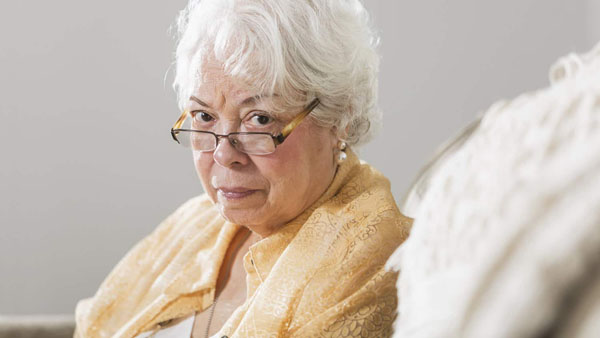How to Care for a Grumpy Mother or Father
14 October 2020
My mother used to stand in front of greeting card racks and weep when she read the messages inside of Mother’s Day cards. She cried because she felt sad and guilty for not loving her own mother. A lot of us buy into the “Hallmark” fantasy of happy families. We think if we don’t feel the kind of love and affection for our parents that’s expressed in those lovely holiday cards, that there’s something wrong with us.

Whoever we are in our youth and middle years is pretty much who we’re going to be in our later years – just more so. So, if your mother used anger and guilt to control you when you were young, it shouldn’t be surprising that as she ages, she will become even more skilled at getting what she wants by making you feel sorry for her and/or bad about yourself. If it’s worked for her for the past several decades, she’s not going to change. She will only continue to perfect her technique. A few years ago a friend told me her father had just died. When she said, “I’m so relieved,” I assumed her Dad had cancer or some other terrible disease and she was happy that his suffering had finally ended. I was wrong. She explained that her father had been an abusive alcoholic, and she said, “I am relieved I can finally stop trying to make him love me.”
We Cannot Make Our Parents Love Us
We would like to think that parental love is unconditional – that our mothers and fathers will love us no matter what. Unfortunately, that isn’t always the case. And no matter what we do, how hard we try, or how much we sacrifice on their behalf, our parents may never be able to love us the way we wish they could. If your parents are not loving people, don’t assume that you’re not lovable or that you’re the one with the problem. It may be that they simply are not capable of caring about anyone as much as they care about themselves.
We Cannot Make Someone Else Happy
Each one of us is responsible for our own behavior and our own happiness. We all encounter frustrations and challenges. How we respond to them is our choice. So if you know your parents’ “default emotion” is negative, accept their choice. Understand that you will never have the power to change who they are or how they view the world and their place in it.
Set Boundaries
The only way we can defend ourselves against someone who uses anger and guilt to get what they want is to set some personal boundaries. This won’t be easy, because if you change the way you have always responded to their manipulation, they will not be happy. You need to start with deciding that it’s not okay for anyone – including your parents, to treat you badly. It might help to print and post these three ideas on your mirror, refrigerator, and next to your phone:
- No one has the power to control me or make me feel bad about myself
- I have a right to live my own life, to pursue my own dreams, to spend time with people I like, and to engage in activities I enjoy
Choose Your Reaction
My grandmother was contrary and critical. She complained about everything, and she rarely had a kind word to say about anyone. And yet, she left a positive legacy, because my mom made a conscious decision to be different. Mom chose to focus on the beauty in her life rather than on the ugliness. Although she was never able to love her mother the way she wanted to, she found other people to love who were also capable of loving her back.
Learn More
If your parents have always been difficult, it’s likely that they are just in the “more so” phase of their lives. However, if their irascible behavior is new, something else may be involved. They could be suffering with depression or even dementia.
Residential Care Guide
Eligibility and AssessmentNew Aged Care Homes
Residential Care Financials
- Residential Care Fee Categories
- Current Fees and Charges
- Basic Daily Care Fee
- Means Tested Care Fee
- What is a RAD, DAP, MPIR?
- Current and Historical MPIR's
- Refundable Accommodation Deposit (RAD)
- Daily Accommodation Payment (DAP)
- Maximum Permissible Interest Rate (MPIR)
- Additional Service Fee (ASF)
Centrelink Form SA485 Explained
Centrelink Form SA457 Explained
Residential Care Agreement
Age Pension Current Rates